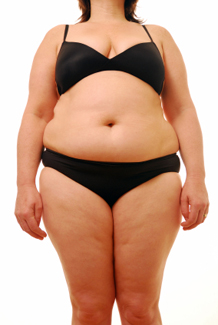The one time most people consider being an organ donor is when they’re in line at the DMV waiting to get their license renewed. But perhaps that consideration should begin earlier – at a doctor’s check-up or even at the gym – because more and more people are now being turned away for organ donation because of their weight.
The rise in obesity rates has done more than just cause people to consider their weight, it’s also sparked a growing effort on behalf of transplant centers to pay closer attention to the health of potential donors who are obese.
According to a recent article from the New York Times, at the current time there is no definitive donor weight limit, however, around half of transplant centers cap donor BMI at 35, and 10 percent turn down donors with BMIs more than 30. This is because obese donors not only have a higher risk for minor surgical complications, but they’re also put at an increased risk of kidney disease in the years following the surgery.
While no in-depth research has been done on the health of obese patients post-donation, doctors fear that obese donors who supply a kidney may be putting their one remaining kidney at risk of being overworked, which is why they’re left a greater risk for kidney disease.
For an example of the severity of this issue, national data suggests that there are currently 92,000 people nationwide waiting for a kidney transplant, and that kidney disease is on the rise in part due to diabetes and hypertension linked to obesity.
At the North Shore University Hospital Transplant Center on Long Island alone, there have been 104 potential donors in the last three years, 23 of whom were morbidly obese and turned away- meaning they had a BMI of 35 or higher. While a few of these candidates did lose weight and qualify to donate, the others were turned away. And at other facilities where the BMI cut-off is 30, even more of these donors would’ve been turned away, meaning more lives left in jeopardy.
Ed Guillen tried to donate to his mother when she was faced with kidney failure in 2026, but he was turned away because of his weight. At 5-foot-10 and 280 pounds, the transplant center told him he had to lose more than 70 pounds before they would even consider him as a candidate. But thankfully, Guillen was able to enroll in a healthy lifestyle program that provided nutritional counseling and personal training classes. In the process, he lost 90 pounds in eight months and donated a kidney to his mother in April.
While the need for organ donation is great, the need for a healthier nation is equally great. And it all seems tied together. News likes this should motivate us all to take personal responsibility for our health to not only increase the number of healthy donors, but also hopefully decrease the need for those in need of a transplant.
Also Read:
Consequences of the Obesity Epidemic
Obesity Linked to Headaches and Migraines
The 30-Minute Rule: How Do You Know if You’re Exercising Enough?
source: NYTimes
